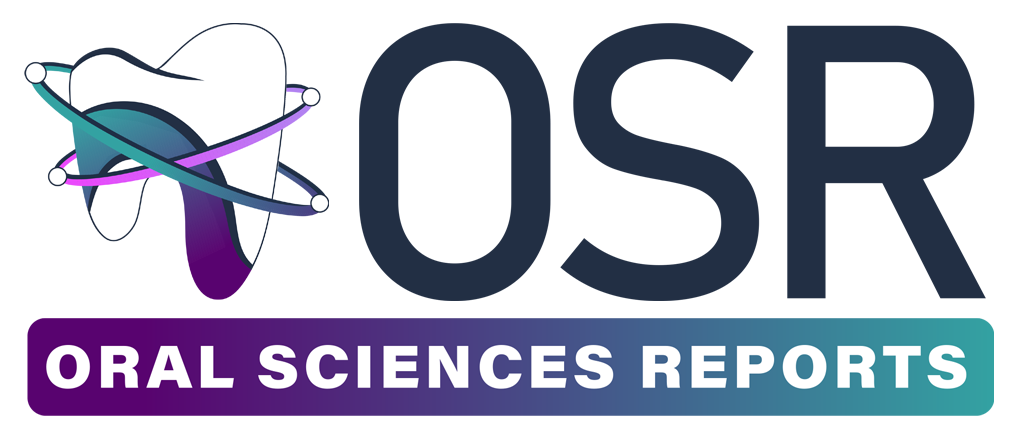The Effect of Dual-Cured Activator with Adhesive on Shear Bond Strength of Resin Cement and Dentin
Purpose: To investigate the effect of dual-cured activator (Single Bond Universal DCA) combined with Single Bond Universal adhesive on shear bond strength of RelyX™ Ultimate resin cement and dentin.
Materials and Methods: Thirty-four third molars were sectioned mesio-distally. Their external of mid-buccal and lingual surfaces were ground into the flat plane to expose dentin. They were randomly divided into four groups (n=17) and etched with 34% phosphoric acid for 15 seconds. Single Bond Universal adhesive was applied to Group 1 (NDCA+LC) and Group 2 (NDCA+NLC). A mixture of Single Bond Universal adhesive and Single Bond Universal DCA was applied to Group 3 (DCA+LC) and Group 4 (DCA+NLC). Resin composite rods were bonded to the specimen with RelyX™ Ultimate. Groups 1 and 3 specimens were light-cured through the resin composite rods. Groups 2 and 4 specimens were kept in an dark box for 15 minutes. All specimens were then stored in 37°C distilled water for 24 hours. Fifteen specimens from each group were loaded in a Universal Testing Machine for shear bond strength testing. Mean shear bond strength from each group was analyzed by One-way ANOVA and Tukey multiple comparison test (p<0.05). The failure surfaces of resin cement and dentin were examined by light stereomicroscope. Two pieces of specimens in each group were cross-section at the middle and observed the resin-dentin interface by SEM.
Results: The highest mean shear bond strength was Group 3 (25.18±6.42 Mpa) followed by Group 1 (22.18±2.73 Mpa), Group 4 (6.27±3.96 Mpa) and Group 2 (4.48±2.73 Mpa). No statistical differences were found between group which use and not use dual-cured activator. The statistical significantly higher bond strength was found in light cured groups. Mixed failure mode presented in almost all specimens.
Conclusions: Using Single Bond Universal DCA with Single Bond Universal adhesive has no effect on the shear bond strength of RelyX™ Ultimate resin cement and dentin.
1. Pegoraro TA, da Silva NR, Carvalho RM. Cements for use in esthetic dentistry. Dent Clin North Am 2007;51(2):453-471, x.
2. Stamatacos C, Simon JF. Cementation of indirect restorations: an overview of resin cements. Compend Contin Educ Dent 2013;34(1):42-44, 46.
3. Tezvergil-Mutluay A, Lassila LV, Vallittu PK. Degree of conversion of dual-cure luting resins light-polymerized through various materials. Acta Odontol Scand 2007;65(4):201-205.
4. Jongsma LA, de Jager N, Kleverlaan CJ, Pallav P, Feilzer AJ. Shear bond strength of three dualcured resin cements to dentin analyzed by finite element analysis. Dent Mater 2012;28(10):1080- 1088.
5. Arrais CA, Rueggeberg FA, Waller JL, de Goes MF, Giannini M. Effect of curing mode on the polymerization characteristics of dual-cured resin cement systems. J Dent 2008;36(6):418-426.
6. Lührs AK, De Munck J, Geurtsen W, Van Meerbeek B. Composite cements benefit from light-curing. Dent Mater 2014;30(3):292-301.
7. De Munck J, Van Landuyt K, Peumans M, Poitevin A, Lambrechts P, Braem M, et al. A critical review of the durability of adhesion to tooth tissue: methods and results. J Dent Res 2005;84(2):118- 132.
8. Sirimongkolwattana S. Resin Cement: Clinical application. CM Dent J 2009;30(1):23-29.
9. Arrais CA, Giannini M, Rueggeberg FA. Effect of sodium sulfinate salts on the polymerization characteristics of dual-cured resin cement systems exposed to attenuated light-activation. J Dent 2009;37(3):219-227.
10. Cavalcanti SC, de Oliveira MT, Arrais CA, Giannini M. The effect of the presence and presentation mode of co-initiators on the microtensile bond strength of dual-cured adhesive systems used in indirect restorations. Oper Dent 2008;33(6):682-689.
11. Tay FR, Pashley DH, Yiu CK, Sanares AM, Wei SH. Factors contributing to the incompatibility between simplified-step adhesives and chemically-cured or dual-cured composites. Part I. Single-step self-etching adhesive. J Adhes Dent 2003;5(1):27-40.
12. Tay FR, Suh BI, Pashley DH, Prati C, Chuang SF, Li F. Factors contributing to the incompatibility between simplified-step adhesives and self-cured or dual-cured composites. Part II. Single-bottle, total-etch adhesive. J Adhes Dent 2003;5(2):91- 105.
13. Suh BI, Feng L, Pashley DH, Tay FR. Factors contributing to the incompatibility between simplified-step adhesives and chemically-cured or dual-cured composites. Part III. Effect of acidic resin monomers. J Adhes Dent 2003;5(4):267- 282.
14. Asmussen E, Peutzfeldt A. Bonding of dualcuring resin cements to dentin. J Adhes Dent 2006;8(5):299-304.
15. el-Badrawy WA, el-Mowafy OM. Chemical versus dual curing of resin inlay cements. J Prosthet Dent 1995;73(6):515-524.
16. Faria-e-Silva AL, Fabiao MM, Arias VG, Martins LR. Activation mode effects on the shear bond strength of dual-cured resin cements. Oper Dent 2010;35(5):515-521.
17. Arrais CA, Giannini M, Rueggeberg FA, Pashley DH. Microtensile bond strength of dualpolymerizing cementing systems to dentin using different polymerizing modes. J Prosthet Dent 2007;97(2):99-106.
